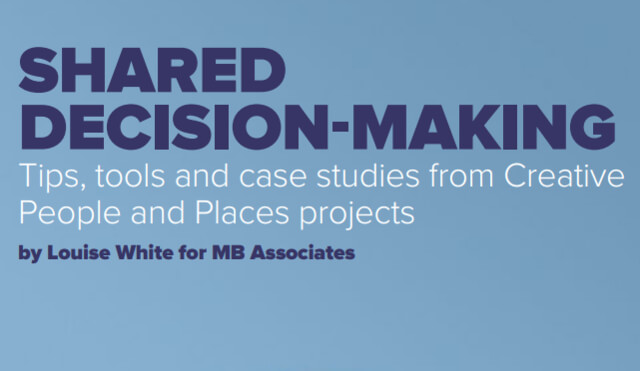Catherine Cartwright is a PhD student at the University of Exeter and University of West of England. Her research focuses on trauma-informed participatory art and its implementation in various settings, including public health and community services. She has collaborated with Devon Rape Crisis and Sexual Abuse Services (DRCSAS) to understand the impact of trauma-informed art practices, particularly through collage projects. Catherine’s work aims to shift organizational structures towards a more compassionate approach that prioritizes individual experiences of trauma. The post also invites feedback and participation from the community to further her research and understand the scale of participatory artists in the UK.
What does trauma-informed participatory art look like? This is the question that has been leading my PhD research these past 4-5 years. Being ‘trauma-informed’ has become a popular way of framing a more human and compassionate approach in public health, in schools[1], in police[2], and even across whole cities – both Plymouth[3] and Manchester[4] are striving to become trauma-informed cities.
The overall aim of trauma-informed practice is to put people before protocol and create a ‘culture of thoughtfulness’ (Wilton and Williams, 2019), to understand how trauma can affect people’s behaviour and to know that our responses and the structural processes in an organisation can make someone’s trauma much worse. Trauma-informed approaches began emerging in the early 2000s following a research study in the US where 9508 adults responded to a survey about their adverse childhood experiences (including for example, psychological, physical, or sexual abuse; domestic violence in the home). This influential study proved a correlation between traumatic experiences in childhood[5] and their physical and mental health in adulthood. Add to this a growing awareness of re-traumatising harm caused by some traditional psychoanalysis environments (for example, the use of restraint) – and research emerged proposing changes to how mental health services operated (Sweeney et al 2018[6], Bloom & Farragher 2020[7]).
To try and answer the question of what does trauma-informed participatory art look like; I have partnered with Devon Rape Crisis and Sexual Abuse Services (DRCSAS) and set up an action-research project open to their service users, mostly women impacted by the trauma of sexual violence and/or childhood abuse. I offered two collage projects, in-person and online, and following these 6 weeks projects, interviewed the women who attended. They spoke to me about how the environment – where we collaged, its urban location, for example – affected their sense of safety, and how collage itself – was a playful and empowering medium. To gather more data about how artists work relationally with communities affected by trauma, I interviewed 24 participatory artists. Thirteen interviews in 2020 which were more open and exploratory, and eleven interviews with artists in 2022 where I asked for their reflections on my first thoughts about trauma-informed arts practice. I called these ‘provocations’ – aiming not for principles or a manifesto, but to stimulate individual reflection on one’s practice. In the future, as a result of this research, I hope to offer reflection sessions using collage explore ideas around trauma-informed practice. If you would be interested in being involved in the testing stage, do get in touch.
Here they are in their short version:
Three Provocations for Trauma-Informed Participatory Arts:
- Artists are looked-after by the organisations who employ them in the form of both emotional and operational support, so that they can be reflexive practitioners able to respond with sensitivity and care to arising challenges and ethical dilemmas.
- Artists and Organisations critically reflect on their power and motivations, prioritising participant-led decision making in all levels of the project, to resist compounding an individual’s trauma through oppressive relational dynamics.
- Artists and Organisations ensure a friendly, non-judgmental space where every individual is both seen and heard, where peer support and care is actively encouraged because feeling connected and cared about is central to recovering from trauma.
As well as introducing my research, I have also written this blog to ask a question – do we know how many participatory artists there are in the UK? I want to demonstrate in my thesis that this is a larger-than-realised dynamic sector, and that my research is relevant. Please get in touch if you know where I might find these statistics.
If you would like to chat about trauma-informed practice in your organisation or individual practice, I would be delighted to hear from you (this wouldn’t be part of the research as that stage is finished, just a chat).
Catherine Cartwright is an artist and PhD student at University of Exeter and University of West of England, funded by the South West & Wales Doctoral Training Partnership, Arts & Humanities Research Council.
Recommended Resources:
Training:
Kazzum Arts offer trauma-awareness training: www.kazzum.org/train-with-kazzum
Further Reading:
This is an excellent report written with survivors:
Wilton, J., and Williams, A. (2019) Engaging with complexity: Providing effective trauma-informed care for women. London: Centre for Mental Health (Registered Charity).
Felitti et al (1998) Relationship of Childhood Abuse and Household Dysfunction to Many of the Leading Causes of Death in Adults: The Adverse Childhood Experiences (ACE) Study. American Journal of Preventive Medicine 14(4).
Available here: https://www.mentalhealth.org.uk/explore-mental-health/publications/engaging-with-complexity
[1] https://www.traumainformedschools.co.uk/
[2] https://www.college.police.uk/research/projects/shame-competence-training
[3] https://traumainformedplymouth.org/
[4] https://www.trgm.co.uk/manchester
[5] Though not all ACEs are deemed traumatic experiences.
[6] Sweeney, A., Filson, B., Kennedy, A., Collinson, L., and Gillard, S. (2018) A paradigm shift: relationships in trauma-informed mental health services. Bjpsych Advances 24(5): 319–333.
[7] Bloom, S. L., and Farragher, B. (2020) Restoring Sanctuary: A New Operating System for Trauma-Informed Systems of Care.




